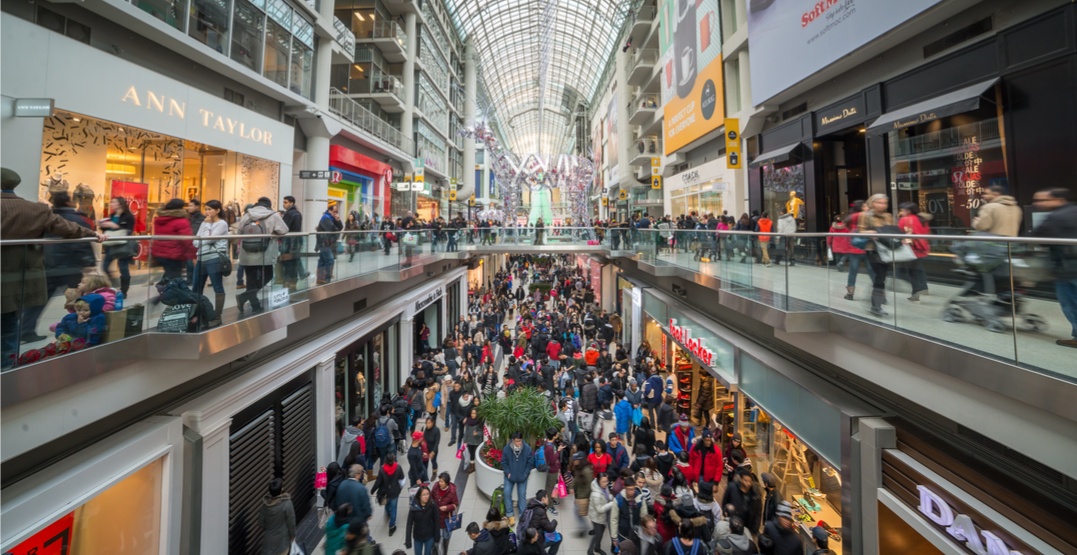Shopper traffic to physical retail stores has strongly rebounded from 2020. Data from Placer.ai, a company which measures shopper visits across a wide range of physical stores including grocery, apparel, big box, department and specialty, indicate that shoppers returned for the 2021 holiday season.
Store visits were higher than 2020 and slightly ahead of 2019
Ethan Chernofsky, vice president marketing of Placer.ai, discussed how retailers were simultaneously concerned that supply chain issues would lead to a lack of products in stores, labor shortages would limit professionals to staff those same locations and COVID would impact consumer demand for in store visits. And while the effects of all of these issues were felt, overall retail holiday visits for 2021 still remained relatively close to, if not above, 2019 levels and far ahead of 2020 numbers.
Chernofsky said, “The ability to drive success even in the face of a ‘perfect storm’ of challenges is a massive testament to the ongoing consumer demand for physical retail. While the sector is clearly evolving in a direction that demands greater omnichannel alignment, the continued centrality of the physical store received a major vote of confidence over the holiday retail season.”
Retail category weekly visits (including all retail categories measured by Placer.ai), began trending up in June of 2021. With the exception of a few weeks, the upward trend compared to 2019 continued throughout the holiday season. Placer.ai data includes grocery, big box, specialty stores and department stores among other segments. Total retail category visits remained higher than 2019 for the majority of the weeks starting around June 2021.
Courtesy of Placer.ai
Strong holiday sales and foot traffic were experienced across many retailers as compared to last year and were moderately improved from 2019. However, many retailers calculate the holiday selling period from November to December (the six weeks from Thanksgiving through New Year’s Day). In 2021 many holiday sales and shopping visits took place in October. Best Buy, Target and Dick’s Sporting Goods showed strong store visits early in season. Target, Best Buy and Dick’s Sporting Goods experienced significant increases in October store visits compared to 2019.
Courtesy of Placer.ai
November and December shopper visits down but sales are up
According to data from RetailNext, a company that measures store shopping visits to physical retail stores, sales for the holiday period measured from November 1 through December 25 were up 1.4% compared to 2019. The amount shoppers were spending per visit was up 17.8% and the number of shoppers making purchases was higher by 2.4% compared to 2019.
Courtesy of RetailNext
While overall shopper visits were down 21.7%, the amount shoppers were spending per visit was up 17.8% and the number of shoppers making purchases was higher by 2.4%. Lauren Bitar, head of insights for RetailNext, said, “This was driven by a strong intent to buy from shoppers who were going into stores, sales being bolstered by curbside and other services, as well as that high average ticket price which was up to 19.3% compared to 2019 and 17.3% compared to 2020.”
Black Friday shopping shifts to October but still remains a top shopping day
Placer.ai data indicated that many retailers saw significant reductions in visits on Black Friday itself, partly caused by many of the Black Friday deals starting in October. However, this did not impact the overall success of the holiday season.
Chernofsky noted that Target saw a 3.1% decline on Black Friday even though November visits were up 3.8%. Best Buy, a brand that traditionally sees huge traffic increases on Black Friday, saw visits down 23.9% on the day, even though November visits were down just 12.8% and October visits were up 10.2%. “The ability of many brands to drive success over a more extended period without the same onslaught of visits will likely drive a continued push for an extended season in years to come,” Chernofsky stated.
Sensormatic Solutions, which monitors and measures shopper traffic to physical stores, released information for the six-week period from Sunday prior to Thanksgiving through January 1, 2022, showing shopper traffic down 19.5% compared to 2019.
Super Saturday is still super
Compared to Super Saturday 2019 shopper traffic was down 26.3% this year, however, Sensormatic Solutions has ranked Super Saturday the second busiest shopping day. “For the last five years, Super Saturday is the second busiest shopping day in the U.S., falling only behind Black Friday,” said Peter McCall, senior manager of retail consulting, Sensormatic Solutions. “There were only three Saturdays in December leading up to Christmas Day this year. As we expected, Super Saturday remains a big part of consumers’ holiday shopping plans to grab last-minute items with supply chain issues delaying the arrival of online orders in time for holiday celebrations.”
According to Sensormatic Solutions, the biggest shopping days for physical retail are ranked as follows:
- Friday, November 26 – Black Friday
- Saturday, December 18 – Super Saturday
- Thursday, December 23 – Thursday before Christmas
- Saturday, December 11 – 2nd Saturday in December
- Saturday, November 27 – Saturday after Thanksgiving
- Saturday, December 4 – 1st Saturday in December
- Sunday, December 19 – Sunday before Christmas
- Wednesday, December 22 – Wednesday before Christmas 9. Monday, December 20 – Monday before Christmas
- Tuesday, December 21 – Tuesday before Christmas
As retailers tabulate the results of the 2021 holiday season, October was a key factor in the stronger performance over 2019. While store traffic was down in November and December across many retail segments, the higher purchasing power by consumers was able to lift sales above 2019 levels for physical retail stores.
This article was written by Shelley E. Kohan from Forbes and was legally licensed through the Industry Dive publisher network. Please direct all licensing questions to legal@industrydive.com.

